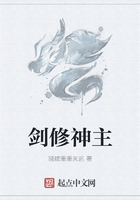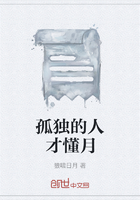Yet I want to play twice a week, how can I arrange that? I ask around a lot and have a look, and finally it turns out that one of my Sunday team-mates, WangQiang (王强), is captain of another team that is playing on Saturdays. They call their team “Tian Long” (天龙), Sky Dragons – and they have just lost their goalkeeper, for he has moved away. That fits so nicely, ever since I am also playing on Saturdays.
It is amazing to see how football works in ShenZhen. While at first I thought “Well, that kind of grassroots football that we have in Germany does not exist here, there are only a few recreational players whom I found by accident”, It turns out: That’s real popular sport here in ShenZhen!
There are reportedly over 2,500 teams of this kind, and I believe this number to the letter. Everywhere there are pitches. For two or three years we have now been mostly playing on a site that now has nine of them. Many of such properties belong
We toast to our centre forward, and wish him all the best. Our player-coach (Korean nationality Chinese, nicknamed “Superstar”) has prepared quite a dangerous mix for the freshly married friend who now is still smiling, later he was caughing and begging for fresh water. When “Superstar” got married a few years later, our centre forward got even.
either to construction companies who plan to build real estate there at some time, or to the city of ShenZhen. Till then, these companies lease the sites to some “football pitch management company” or individuals that establish pitches, take care and rent them. The managers of such pitches also arrange matches if some team does not find an opponent for the next weekend or the one after the next.
Fu JiaoChen (傅佼晨) is the manager of those nine football pitches on which we play almost every Saturday and Sunday. He lives with his wife and young son in very simple containers on the site, he also has his office there, and from there he manages the pitch assignment and ensures that all teams will have their opponents and the pitches are booked out. In all, he wants to have at least three matches a day during the week (under floodlights), and at the weekend altogether 48 matches (starting at 2 p. m.).
Several assistants he has hired, not to mention a host of ten referees – no match on his site may begin without a referee, and the ref must be paid by the teams as well. Other volunteers are cleaning up, bring water to the teams, collect the empty plastic bottles of water (there are no bottles of beer, no beer to be drunk on the site), repair the goal nets and ball nets at the sides of the area, mow the lawn in summer and water it in winter, during longer periods of dryness.
Groundkeeper Fu is a master in the art of living. He is not overworked, not at all. After lunch he begins his tea ceremony, he has the best teas, and he knows how to prepare them. And he has a professionally decorated tea table. Every few weeks, the German grandpa-goalie is even earlier than usual on the site, and then he is invited and they talk over the tea as much as his Chinese may grant them. Gradually there come the referees, they all get their tea before the opening.
Sometimes groundkeeper Fu plays himself, and sometimes all the referees together plus a few additional players are gathered into a team, and they also play against us at times. Don’t be deceived, all those referees are excellent football players, unlike in Germany where we keep saying: “He who does not know how to play football will be the referee.”
Groundkeeper Fu patiently introduces his son to the mysteries of football. There are no children teams, except at the primary schools. But his main job is to provide all teams with matching opponents and keep best pitches in prime condition – which pays for his living, at least for as long as the property will not be cultivated. What will happen to our football playing if buildings should once be raised on this or other sites, I do not know.
We only play once a year against the same team, there are plenty of others.
Children are watching one of the young couple’s friend painting good wishes for them in beautiful chinese characters.
Somehow our organisers always manage to find opponents of about the same quality. One of the team is responsible for operating it, another for finance, a third one for the formation. We rarely play against grossly inferior teams, rarely as well against hopelessly superior ones, but often against some who are slightly superior but against which we can make a difference.















